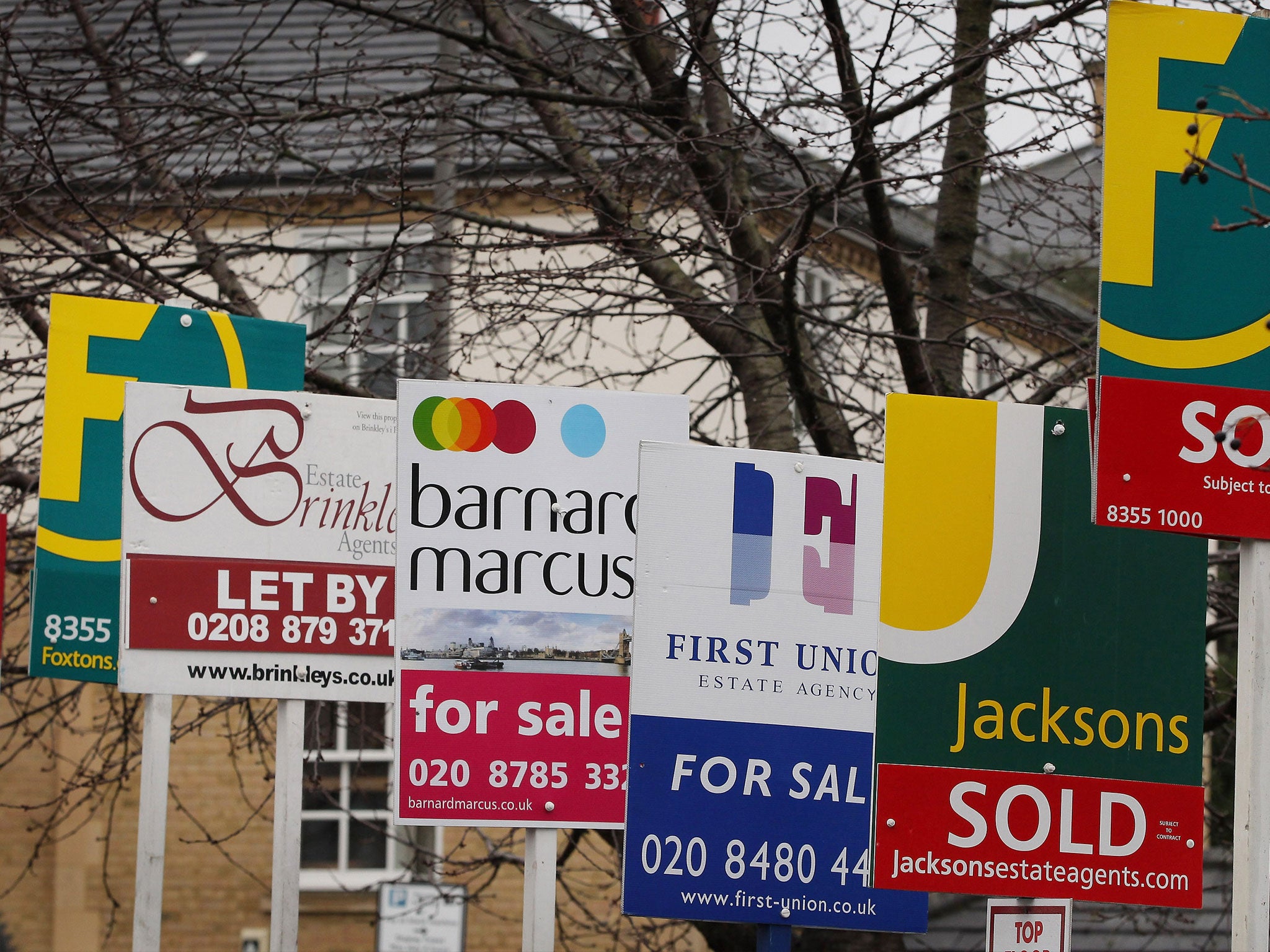Nearly half of UK properties ‘down valued’ by mortgage lenders
Stamp duty holiday and rise in prices threaten values during Covid bubble

High house prices are threatening to undermine the buying process as ambitious sellers are clipped by lenders’ valuations, a new survey suggests.
A survey of 1,000 buyers whose transactions spanned the first six months of the Covid crisis, found 46 per cent have had their prospective property down valued by their chosen mortgage lender after a sale and price had been agreed with the homeowner.
While most were down valued by between £5,000 and £10,000, one in four were hit with an adjustment of up to £20,000. Some buyers reported their potential properties had come back with valuations £240,000 under the agreed price.
Homes priced between £400,000 and £500,000 are most likely to have been hit with a devaluation, the survey by mortgage comparison site Bankrate UK revealed.
And the younger the buyer, the more likely they were to face an undervaluation, suggesting time and experience in the housing market pays. Just a third of the over 45s have agreed to an inflated price compared with half of the under 34s.
A third of millennials discovered their dream property was deemed to be worth £20,000 to £30,000 less than the agreed sale price, while for buyers over 45, the majority of down valuations were between £5,000 and £10,000.
Meanwhile, properties in Wales had the highest percentage of down valuations at 63 per cent. In close second was the capital, where 59 per cent of properties were considered less valuable by lenders, swiftly followed by Yorkshire and the northwest.
Homes in the southwest were most likely to hold their price.
A game of consequences
But adjustments like these don’t simply mean a buyer manages to dodge an expensive bullet. It can often mean the end of the purchase road altogether.
“In August I attempted to buy a semi-detached property in Billericay, Essex, for £450,000,” says Sam, a 30-year-old software engineer from Essex.
Get a free fractional share worth up to £100.
Capital at risk.
Terms and conditions apply.
ADVERTISEMENT
Get a free fractional share worth up to £100.
Capital at risk.
Terms and conditions apply.
ADVERTISEMENT
“My offer was accepted by the seller but after a survey by my mortgage lender, the property was devalued by £50,000.
“As the seller was unwilling to reduce their asking price, I subsequently lost the mortgage offer and the property, as I was unable to increase my house deposit to cover the cost of the devaluation.”
Yet again, the impact of a value downgrade is stronger among younger generations. Eighteen- to 24-year-olds are the highest proportion of buyers who lost their mortgage offer and property all together because they couldn’t afford to cover the gap that had suddenly opened between mortgage loan amount and the property price.
By their 40s and 50s, more buyers were still able to secure their new home.
“If, like most buyers, you need a mortgage to buy a property, then the lender will want reassurance that it is worth what you want to borrow for it. Borrowers must pay for a valuation which gives the lender this peace of mind,” says Mark Harris, chief executive of mortgage broker SPF Private Clients.
“There have been instances where the valuation has not been high enough for the lender to agree to advance the mortgage requested in full. If borrowers can’t make up the difference from savings, then the transaction will fall through,” he admits.
Valuations tend to be fairly subjective. One person’s down-valuation would be an appropriate market appraisal in someone else’s eyes. What somebody is willing to pay for a property may not be the same as what the valuer believes it to be worth. With a shortage of quality stock and a release of pent-up activity, properties being sold over asking price is not uncommon.
He argues that there are always variations, whether regional, by property type or even buyer type. “House prices (whether softening or rising) can be influenced by the availability of credit, economic factors such as unemployment and the increased desire for properties with garden/studies.”
Moving on
Although buyers can ask the seller to reduce their house price to cover the cost of down valuation, only 33 per cent of those surveyed did so.
Of those who did ask the seller to reduce the price, three quarters had their offer accepted but more than one in ten still had to increase their deposit to cover the cost. Most of these buyers are aged 18-34 and they did so either through their own savings or with help from their family.
But if the ends don’t meet thanks to a down valuation, the chances of finding something else seem slim. Among those who received a down valuation they couldn’t resolve, only 2 per cent of would-be buyers have gone on to offer on another property.
Join our commenting forum
Join thought-provoking conversations, follow other Independent readers and see their replies
Comments
Bookmark popover
Removed from bookmarks